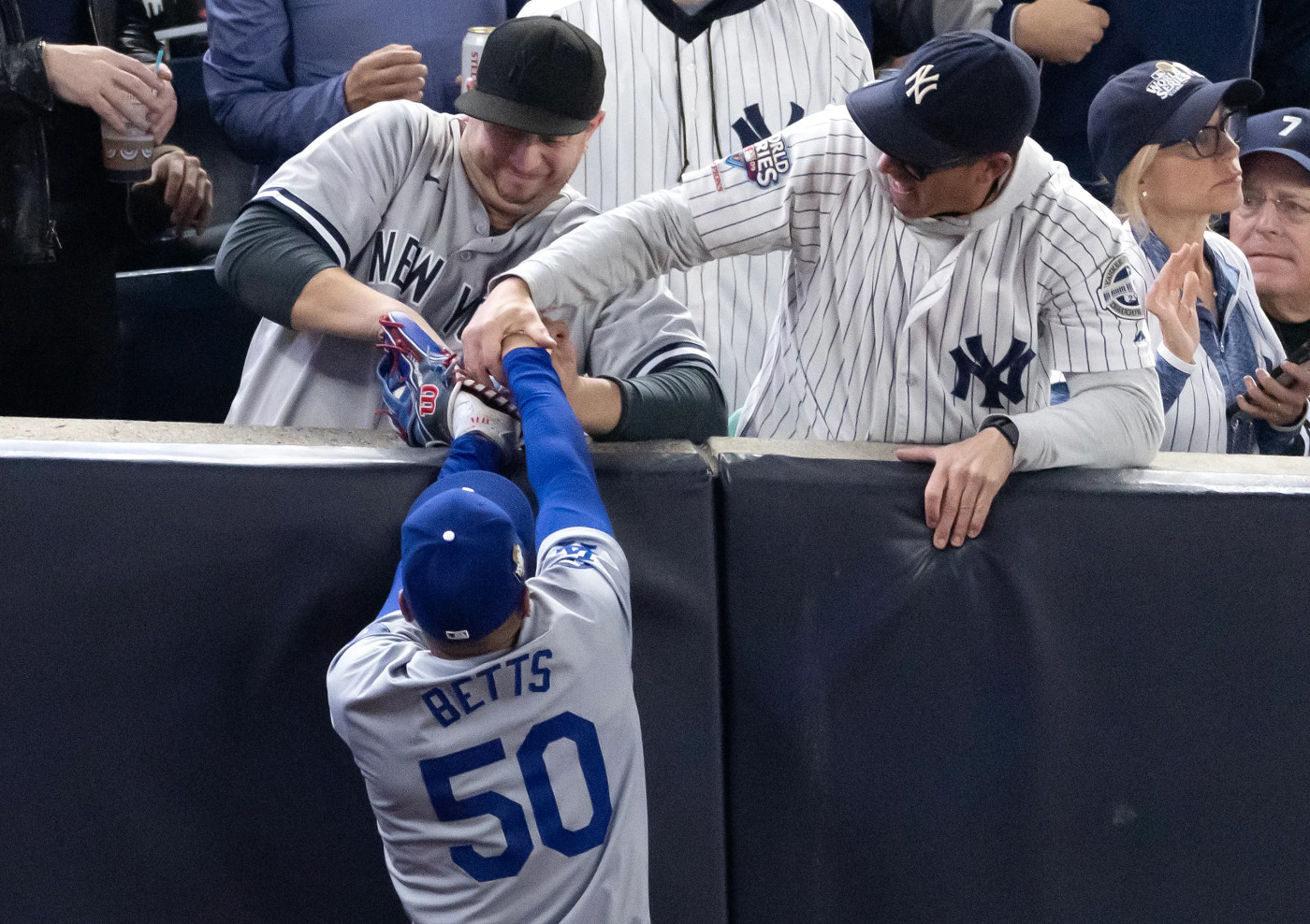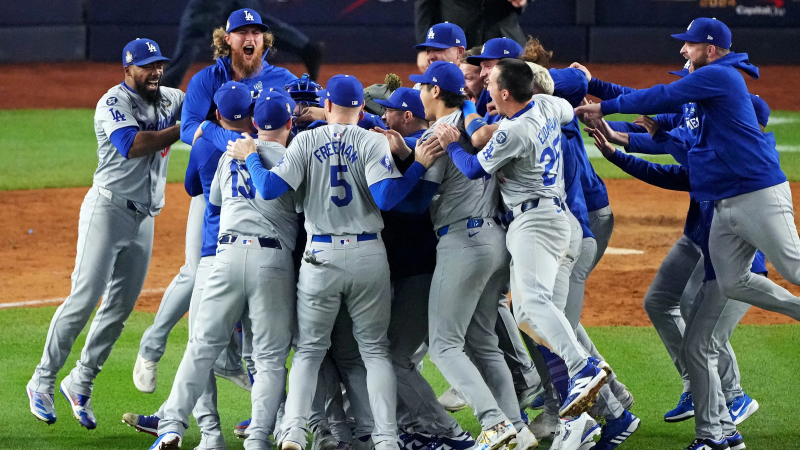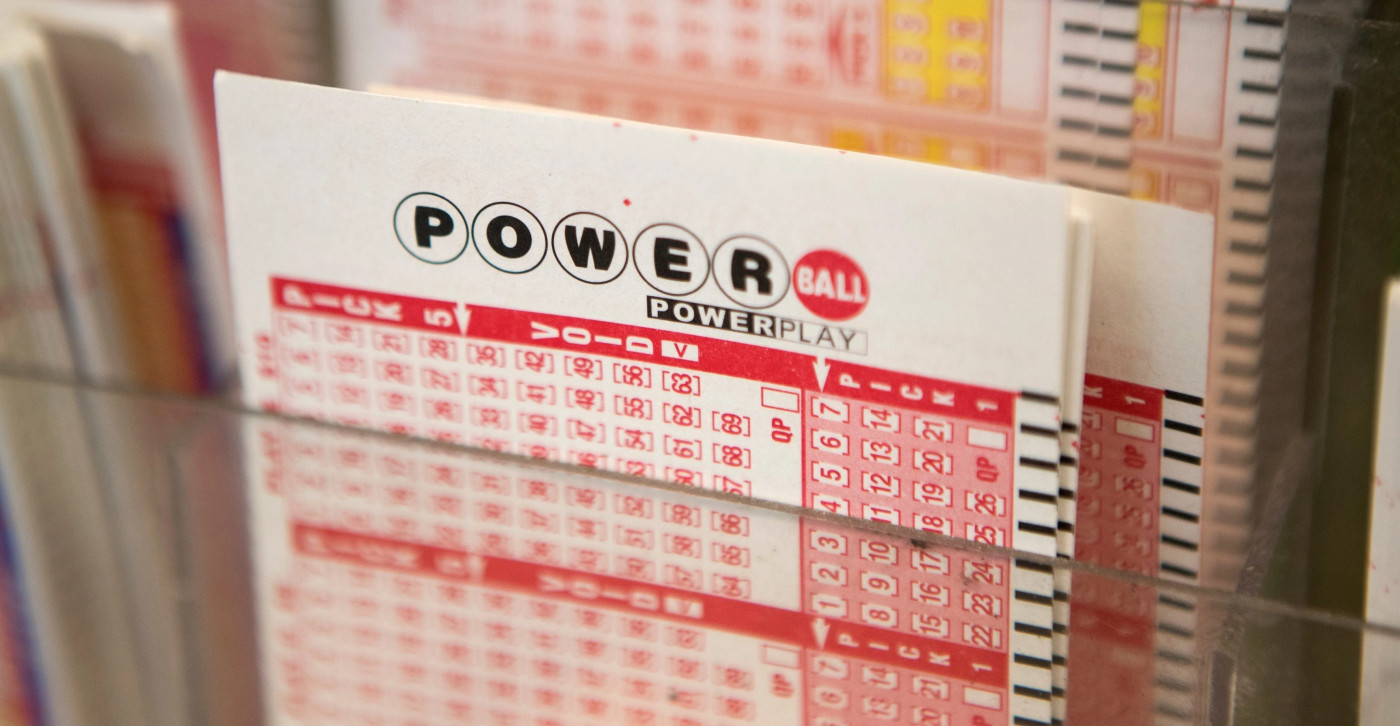
Do high ticket prices for games affect sports fan behavior? Experts weigh in.
The World Series might be over, but one moment from Game 4 is still fueling discourse.
Two New York Yankees fans were ejected from the game after they interfered with Los Angeles Dodgers outfielder Mookie Betts by prying the ball out of his mitt as he made a leaping catch against the wall, near where they were seated. The men were also banned from attending Game 5.
"I think we may have a new entry in the annals of fan behavior," Daniel Wann, a psychology professor at Murray State University who has studied the psychology of sports fandoms, told USA TODAY. "But we didn't get here overnight."
It's not just people prying open baseball mitts or celebrations turning criminal. There have been many instances of fan interference and questionable behavior at sporting events over the years. And there's a lengthy list of unacceptable offenses that can get people ejected or even banned from venues.
More:Fan interference can get you ejected from games. Here's what else will get you banned.
During World Series Game 4, before the bungle with Betts, a fan chose a Stand Up to Cancer moment of silence to heckle Dodgers' player Freddie Freeman. In 2021, a Celtics fan was arrested for throwing a water bottle at former Boston player Kyrie Irving following an NBA playoff game. At another 2021 NBA playoff game, a fan was banned and had his season ticket membership revoked after dumping popcorn on then-Washington Wizards guard Russell Westbrook.
High ticket prices not a deterrent
Culture shifts and costly tickets may be affecting how people behave in public.
"People seem to feel like they have more license to act in a rude and disrespectful fashion," said Harvey Milkman, professor emeritus of psychology at Metropolitan State University of Denver.
More:Why did everyone suddenly stop using headphones in public?
Fans might be willing to pay hundreds, if not thousands, of dollars to attend the games of their favorite teams, but the high ticket prices are not as much of a deterrent to unruly behavior.
In 2023, the average cost of NFL game tickets rose 8.6%, and the average cost of MLB tickets rose 3.5%, according to Team Marketing Report, which releases fan cost index reports for pro sports each year.
"You would think that if you're going to pay all of that money, you wouldn't want to do something that's going to get you kicked out of the game," Wann said. "People don't go to the games expecting to. Once you get in the environment and you get wrapped up with other fans, you're not thinking about the ticket price. You're thinking about the game on the line."
The high cost could even have an opposite effect in some cases.
"If you're willing to pay a very high amount for something, then you become even more invested in the outcome and your participation in it," Milkman said.
When it comes to sports fans, especially superfans, "if your team wins, you and your self-esteem hinges upon how the team is doing," Milkman said. "Then when you invest a thousand dollars in a ticket, you become even more invested."
What's really behind behavior
There can be many factors that make a sports fan choose violence or bad behavior.
One ingredient that can contribute to chaos is the availability of alcohol at many stadiums and arenas.
"You can't talk about this without talking about the potential impact of alcohol," Wann said. "Certainly alcohol has the potential to embolden people to do things that they might not otherwise do."
Another contributor can be a group mentality. Fans in the stands might have a sense that they can't be singled out, Wann said.
"They'll do things that they wouldn't otherwise do because they don't think that people are going to be able to identify them," he said.
Following his ejection from Game 4, one of the fans told ESPN, "We're not going to go out of our way to attack. If it's in our area, we're going to 'D' up" – almost as if he were a Yankees player and not just a fan.
"For a lot of fans, the sporting event and being a fan of the team is an extension of who they are," Wann said. "When the team loses, it's their loss, and if the team wins, it's their win. But also, if a referee makes a controversial call against a fan, that fan's going to feel like they were slighted, just like the players do."
Sports fandom can become a big part of someone's identity.
"We know that part of the violence is because fans have such a high level of identification with their favorite team and their favorite players," Wann said.
Many fans are "born into their sports teams almost like they're born into religion or ethnic identities," Milkman said. "They are so closely identified, it is as if they are part of the team."
There has also been a decline in identification with "more traditional support systems, so people tend to cling more closely to things like sports teams," Milkman said. "It can drive people to more extreme or radical levels of identification with a sports team "when they have less connections to more traditional and comforting areas of social and personal life."
Another factor that can heighten emotions and drive bad behavior is how competitiveness and wanting to win are more prioritized in culture.
"It used to be more acceptable that if you lose, you lose. But now the culture is more attuned to winning is the ultimate proof of my value and my worth, and I'm going to do anything to win," Milkman said. "This is part of the cultural condition that we now live in where people overvalue, from my point of view, the necessity to win at all costs."
More:Hats, jerseys and jackets, oh my! How the World Series is an MLB merch bonanza.

Like alcohol, politics and social stressors may also be contributing to how fans behave.
The nation has "a highly charged election right now," Milkman said. It's as if "the whole of society is on adrenaline. And when you're in that kind of state of adrenaline, you're likely to make errors in judgment. Our whole country is in the state of hyperarousal right now."
It's hard to tell if fan behavior will improve in the coming years, Wann said.
"I don't know what it will be like in 30 years, but I don't think that 30 years ago, you'd expect to see some of the stuff we're seeing now," Wann said. "My hope is that you get more civility in the stands, but I haven't seen anything to make me think that's what's going to happen."

